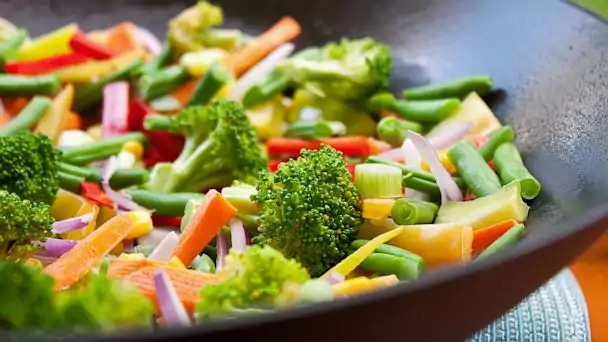While vegetarians were still considered a somewhat exotic species just a few decades ago, the meat-free lifestyle has since then become an established part of society. Most nutritionists now agree that the vegetarian diet is in fact a healthy alternative to a conventional mixed diet. The following article is based on an interview with nutritionist Antje Gahl of the German Nutrition Society conducted by the magazine “natürlich vegetarisch” (naturally vegetarian).
Can Anybody Simply Switch to a Vegetarian Diet?
Basically yes – there’s no problem with giving up meat and fish as long as some basic nutrition rules are kept in mind. But that holds true for any diet – even a mixed diet will be unhealthy if it isn’t balanced. As long as vegetarians make sure they regularly eat fresh fruits and vegetables, wholegrain/wholemeal products, pulses and legumes, nuts and high quality vegetable oils, there is nothing to worry about. And if you should be concerned about getting enough protein, you can still add some cheese, tofu and possibly even eggs just to make sure.
What about Nutritional Deficiencies?
If the above mentioned rules are followed, there shouldn’t be any problem with nutritional deficiencies. This also applies to iron – that vegetarians have a higher risk of iron deficiency because they don’t eat meat is just one of the many food myths surrounding vegetarianism. In fact, studies have shown that vegetarians have just about the same risk of iron deficiency as anybody else – while their iron stores tend to be lower than those of non-vegetarians, their iron/ferritin levels are usually within the normal range. Recent studies have shown that low iron stores still within normal range may even have some additional advantages such as better protection from infections as well as protection from arteriosclerosis.
However, it’s important to know that vegetable-based iron doesn’t get absorbed as well as the iron in meat by our bodies. The good news is that the absorption of iron from vegetable sources can be improved by adding vitamin C – simply eat an orange/kiwi/strawberry/piece of papaya with your whole wheat bread or have some orange juice along with your meal.
Vegetarian Sources for Protein
Another important issue is protein. One of the myths surrounding vegetarianism is that it doesn’t provide enough protein for the body. Especially for lacto-ovo vegetarians (who include milk products and eggs in their diet), this shouldn’t be an issue at all. But even on a vegan diet (no meat, fish, eggs and milk products) there are plenty of food options such as legumes, nuts and seeds, soy bean/tofu products and algae that provide plenty of high quality protein. Protein is also present in most grains, vegetables and fruits, for example rice, millet, buckwheat, broccoli, potatoes and even grapes and apples.
The German Early Education Services Family Handbook points out that people eating a conventional, non-vegetarian diet may in fact eat too much protein as well as too much fat while vegetarians don’t have that problem. Veggies also score better as far as the most important vitamins are concerned.
What Are the Benefits of Eating Vegetarian?
A vegetarian lifestyle has many benefits on various levels. As far as the health aspect is concerned, there are a number of reasons why you might consider going veggie. According to the Nutrition Society of Germany, vegetarians are less often overweight, suffer less often from high blood pressure (hypertension) or high blood cholesterol. Furthermore, the average vegetarian eats more complex carbohydrates and more dietary fibers than the average non-vegetarian and also has a reduced risk of diet-related diseases such as diabetes, arthritis, cardiovascular disease and even cancer. Thus, it is little surprising that vegetarians have a longer life expectancy than non-vegetarians.
